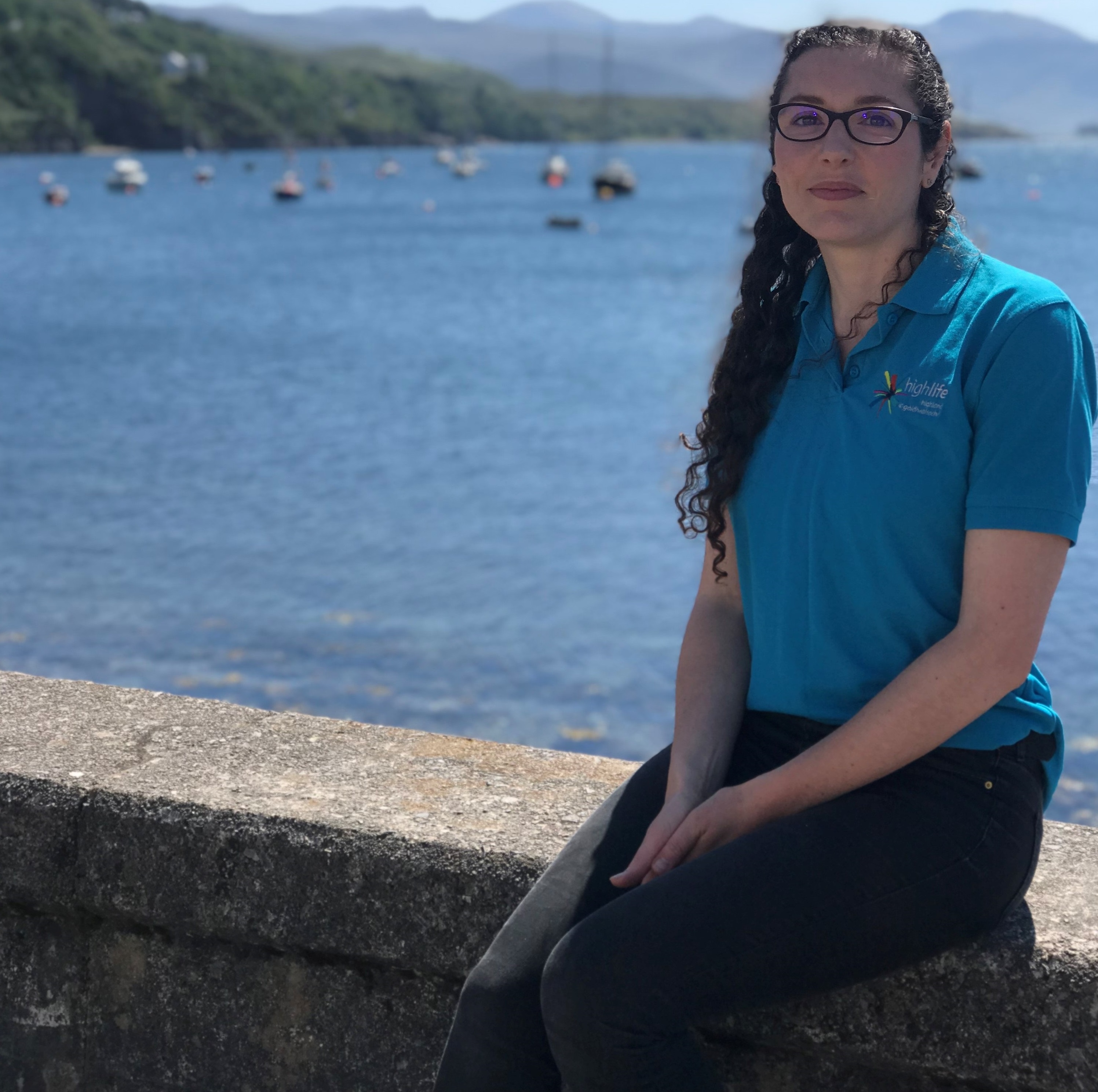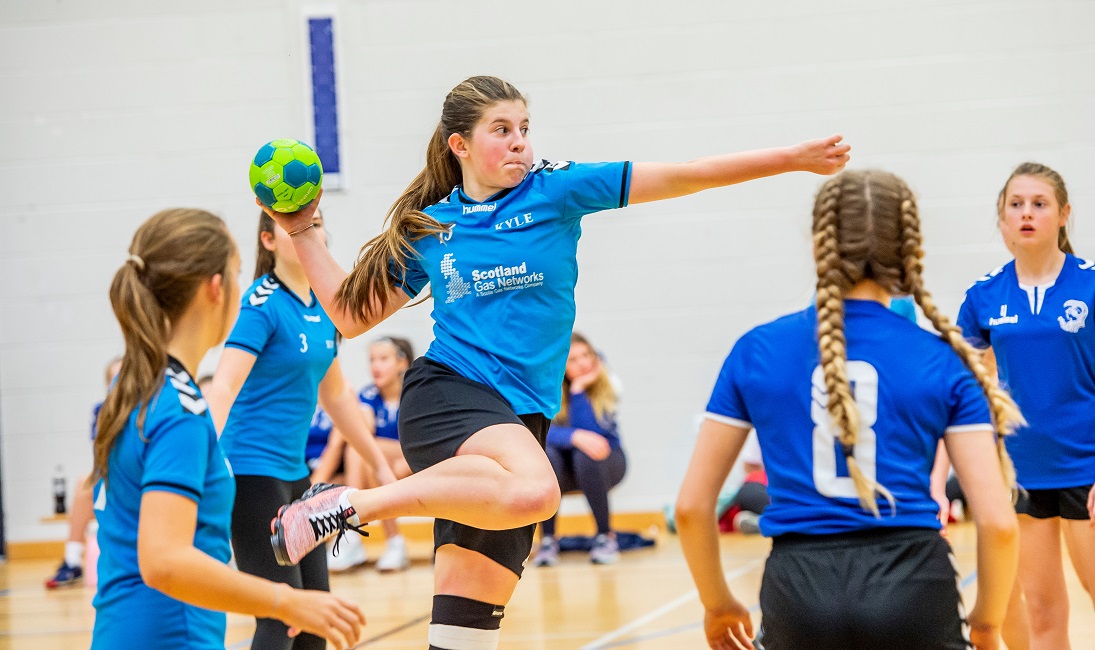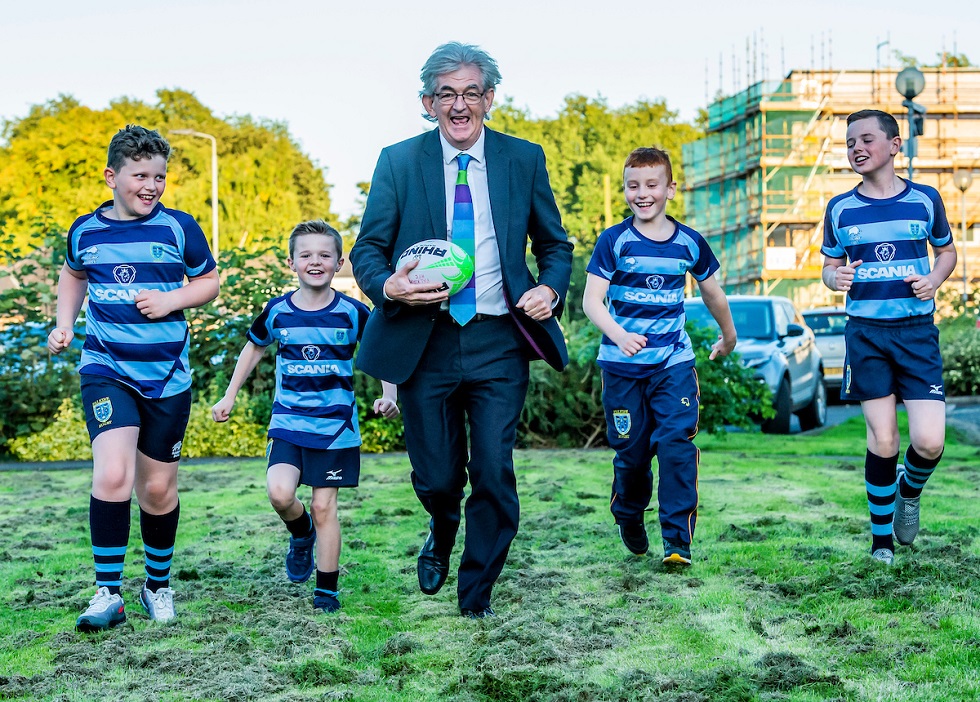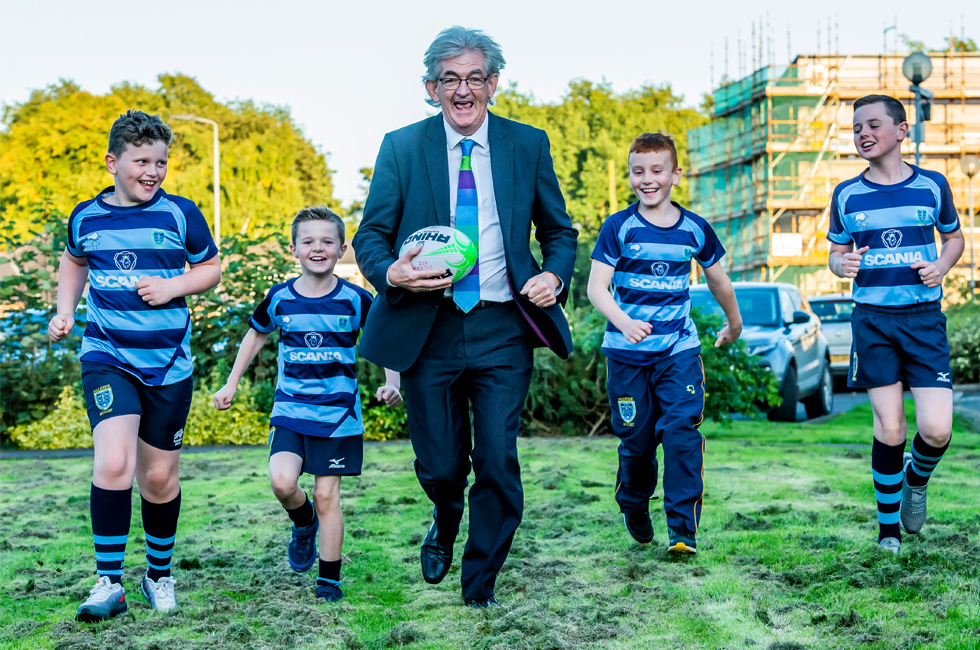The pandemic brought about immeasurable challenges for us all. For Katie Matthews, in the face of those challenges she witnessed greater teamwork and a joint determination to reconnect people with their communities and help them enjoy the positive effects of sport and physical activity.
Returning from maternity leave in June 2020, the High Life Highland community sport hub officer was among those determined to use the long periods of lockdown to support mental health and wellbeing in rural areas.
Based in Inverness, her first priority during lockdown was to maintain contact with the six community sport hubs (CSH) across North Highland, namely Ullapool, Skye and Lochalsh, Thurso, Wick, Dingwall and Tain.
Katie, who has been a hub officer since 2018, said: “The main thing was communication. As soon as I came back, I started networking with a wider range of partners at community, regional and national level to consult on and address local needs during the pandemic.
“Everyone was anxious to find out how, and if, they could keep their activities going safely, so that’s where the initial focus was. It meant staying in close contact with hub members and also spending time engaging with new community partners, which helped strengthen and forge new connections.
“Due to the reduction in socialising and indoor exercise, we also had to find ways to help people reconnect and stay active so we linked up with a broad range of third sector and community organisations to tackle issues around social isolation, mental health and wellbeing and reach people who found themselves isolated from family, friends and society in general.
“Local individuals, clubs and groups were incredibly proactive.
"We looked at a range of ways to collaborate and support their communities, for example leaving footballs and sports equipment out for kids to use during lockdowns. Everyone definitely rose to the challenge and tried to do their bit.”
As well as engaging closely with the hubs, Katie responded to local need on the ground, working within High Life Highland’s outdoor activities programme to keep children active between the lockdowns.
She explained: “Everything we did was about adapting to Covid regulations, so there was a lot of additional risk assessments, activity logs and staff briefings to ensure everyone involved had the right level of knowledge and training about additional measures.

“I think the pandemic brought into focus how much we really value and rely on our social connections and the difference they make to us.”
One of the most important initiatives Katie worked on during the pandemic was the Feel Good Festival, organised by the Ullapool community sport hub working group and local High Life Highland staff to promote physical activity, mental health and wellbeing.
Held at the end of November 2020, it saw 22 partners deliver 18 free, informal sessions ranging from mountain biking to mindfulness sessions, with a mix of virtual and outdoor activities.
Katie said: “We all felt very strongly that, as difficult as it was going to be, it was really important that the festival went ahead, albeit in a different format to the previous year.
“We wanted to provide a wide range of opportunities for people to socialise, take part in physical activity within their bubbles and connect with the community again. I think that was something they’d missed and we had a really positive response with the festival impacting 1081 people in the North West Highlands – in fact 100% of participants who answered a post event survey said they felt that the festival had improved their mental health and wellbeing.”
“The festival has helped Ullapool community sport hub take a community-centred approach to health and wellbeing. Involving and empowering local communities, particularly disadvantaged groups, through events like this plays a crucial role for promoting health and reducing inequalities.”
“Using the learnings from the Feel Good Festival, we’re now looking at creating an open day launch event for the Skye and Lochalsh community sport hub. We want to take a similar approach in offering a mix of face-to-face events and virtual workshops to support coaching, volunteering, and participation in physical activity and sport.”
Hot on the heels of the festival, another proud achievement came with the distribution of Winter Wellbeing Packs among communities in and around Ullapool, secured with additional Green Health funding for the local CSH.
Katie revealed:
“Covid exacerbated the sense of isolation in rural areas, so we wanted to reach out and provide information, tools and resources to help people stay active, look after their mental health and connect with nature during the winter.

“Incorporating Green Health helped people to look at how they can make their daily exercise and activity more sustainable both for themselves and the environment.
“Packs were tailored to recipients, so for schools they included bird and salad seeds, outdoor activity chalks and scavenger hunts, while the ones for care home residents had armchair exercises, walking advice, pedometers and bulbs for planting.
“We only planned to do 500 yet ended up giving out 777 which was extremely satisfying, and the feedback was very positive. Like the festival, it was all about stakeholders and partners having shared goals and contributing their own specialist expertise and resources.”
Collaboration
Katie is now also working on an active health study in partnership with the University of Highlands and Islands and Sustrans to explore how such positive collaboration can be extended to help other communities.
She said: “I’m helping to coordinate focus groups across three Highland communities, looking at barriers to active health and travel and whether local needs are being met.
“The study partners have consulted with organisations and networks across the Highlands and within each community to build up the wider partnership. Together we’re looking to develop strategies to facilitate access and increase the use of outdoor spaces and hope the resulting data will influence future active health and travel projects.”
“It will also provide a valuable insight into specific issues experienced by rural communities, so we’re trying to ensure the most vulnerable and hard to reach have a voice in the study.”
Looking to the future, Katie says she feels positive about the future – and insists Coronavirus (COVID-19) has demonstrated the value of teamwork among her colleagues and communities.
She said: “It’s been an extremely difficult year. But I feel that everyone I’ve worked with has stepped up to help improve resilience within their local community, support the most vulnerable and work more collaboratively.
“For me, that’s one of the biggest positives to come out of Covid and I see it happening everywhere across the Highlands with other organisations, partnerships and networks.
“I think that seeing people work together in new ways has been so encouraging and has the potential to help communities become more resilient. I think that it is the way forwards not just to overcome the trials brought about by Covid, but in tackling other challenges in looking after mental and physical health and wellbeing across rural communities. I feel proud to have played a part and I’m really confident looking ahead.”
Find out more
About Playing Our Part 2021
About community sport hubs near you.
Follow the hashtag #PlayingOurPart21




